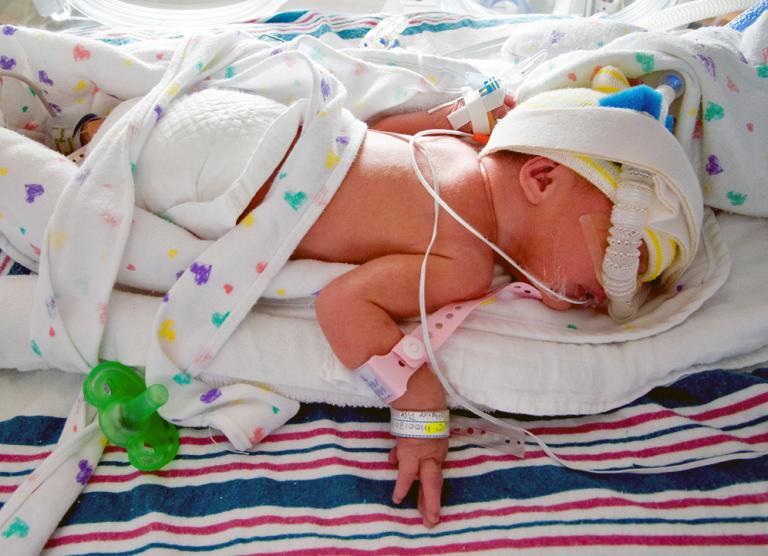
SMDH, as they say.
Let me start by telling you about the “family bill of rights” as declared by senator and presidential candidate Kristin Gillibrand, which dates to late May but only came to my attention last week as a result of an Institute for Family Studies blogpost.
She proposes the following five items in a Medium blogpost:
“1. The right to a safe and healthy pregnancy”, which sounds unobjectionable enough.
“2. The right to give birth or adopt a child, regardless of income or sexual orientation” – which includes prohibitions of “discrimination” by “taxpayer-funded adoption and child welfare agencies” as well as tax credits to enable low income families to adopt (hmmm. . . do low income families have the “right” to adopt an infant matching their racial and ethnic identity, without any identified disabilities, or just some child; the latter is, of course, “free” via adopt-from-foster, but the cost of the former is not only as high as $45,000 but severely constrained by supply in a way that no tax credits can remedy), and mandated fertility treatment coverage by insurance companies (she references LTBTQ couples in particular but then gives IVF as a type of benefit she’d mandate — would she go as far as requiring insurance-paid surrogacy for gay couples?).
“3. The right to a safe and affordable nursery” . . . yeah, let’s get back to that one.
“4. The right to personally care for your loved ones while still getting paid, including care for your child in its infancy” — yes, that means paid leave for caregivers of newborns and aging parents. (Why not toddlers and preschoolers, if this is a right, after all?)
“5. The right to affordable child care and early education before kindergarten is available publicly” — this one is not a surprise. Everyone’s promising state-funded daycare.
But what about #3, the “right to a safe and affordable nursery”?
Here’s what she says:
The costs of raising and safely caring for a newborn can be daunting, and too many families simply can’t afford it. I will launch a new program to provide “baby bundles” for new parents so that all new families, regardless of income, can start off on the right foot with the supplies they need. These bundles will be filled with the most important items for a child’s first month at home, like diapers, swaddle blankets, and onesies, all in a box with a small mattress that can be repurposed as a nursery bed.
Finland has dramatically lowered its rates of infant mortality as a result of its baby bundle program. And here at home, Ohio, Alabama, New Jersey, and Texas all offer a version of the program for new families.
So, to begin with, the Finnish version of a “baby box” has been around for generations now, and it’s become a part of their culture. Each new mother receives her choice of a box filled with layette items or a modest voucher — there are onesies, bodysuits, a snowsuit, cloth diapers, and even condoms. and the box itself, with a small mattress, serves as a bassinet for the smallest babies. It’s credited with reducing infant mortality, though not so much due to the box itself (though it promotes infant safe sleeping) as because it came with the requirement for prenatal checkups at a point at which Finland was rather poor and the practice was not the norm.
In the United States, as Gillibrand says, there are indeed versions of the program in a few states. Parents have to watch a brief video of “safe sleep” recommendations to qualify, and it’s run through the state governments, but it’s not really the same concept at all. I came up empty trying to find out how much these states are paying the vendor, and how much of the business model is really a matter of the vendor providing a fairly cheap product funded by baby-product manufacturers giving away free samples — though not baby clothes, but instead small packs of diapers and sample sizes of personal care products, plus coupons. (Here’s an Upworthy page which is impressed for seemingly not much reason, and some discussion forum chat which seems to suggest that retailers have gotten into the act, again, attracting customers for the samples, but the “baby box” vendor is charging $70 for individual customers. Another website says these boxes are untested and unsanitary because, naturally enough, there’s no way to clean up diaper blow-outs or other spills.)
So near as I can tell, it’s a scam. The baby box company sells them to states for undisclosed costs promoting “safe sleeping”, and stocks them with samples, which parents seek out and toss the box. It’s the 2019 version of the diaper bag full of baby formula. How many parents use the boxes for their intended purpose is wholly unknown.
But Gillibrand, apparently enamored of the idea, thinks that not only should the federal government get into the act, but that it extends beyond a “nice idea” to something that is every parent’s right.
A right.
And I was dumbfounded at how far the rhetoric around “rights” has gone.
Here’s another example: Nature Cat.
Yes, I was with my kid at the pediatrician’s office for his annual check-up. It’s been a long time since the days of far more frequent visits, let alone of watching kids’ TV at home, but PBS Kids was playing, and it was a show called Nature Cat. The basic plotline of this episode (which was actually fairly short, or maybe shifted into a different direction later, as we really didn’t have to wait that long) was that the Bad Cat had built a waterslide that diverted the water and dried up the marsh and all its plant life, leaving the anthropomorphic animals to suffer. So the Good Cat gave him a talking-to, he realized the error of his ways, and discovered that (duh! why didn’t he think of that before) all he needed to do was move the waterslide and he and his fellow Bad Cats could enjoy it while the marsh was preserved. So in that sense it was a typical children’s lesson on nature: we all must care about the environment, but, no worries, there are never any tradeoffs.
Except that in this case they introduced a new concept to their child-viewers: “nature’s rights.” And what are they? In this clip (at about the 2 minute mark), Nature Cat said, “rights are like rules that tell everyone what is allowed and what is not allowed.” (Not in the clip is a further statement that “nature” itself has “rights,” which is the point at which I looked up from my phone.)
Oh, and a couple days ago, Bernie Sanders made a speech proclaiming his “economic bill of rights.” As cited by Megan McArdle,
In his prepared remarks, he promised an “Economic Bill of Rights” to complement the old-fashioned political one, guaranteeing “every man, woman and child in our country basic economic rights — the right to quality health care, the right to as much education as one needs to succeed in our society, the right to a good job that pays a living wage, the right to affordable housing, the right to a secure retirement and the right to live in a clean environment.”
And, yes, even the UN’s landmark 1948 Universal Declaration of Human Rights includes these “economic rights.”
But what does the concept of “human right” mean when it is defined so expansively? Once upon a time, there was a fundamental foundation of natural law and the idea of “natural rights” – as expressed at the convenient top search result ThoughtCo, “Natural rights are rights granted to all people by nature or God that cannot be denied or restricted by any government or individual.” Many of these are obvious: the right to a fundamental liberty (that is, the right not to be enslaved), the right to freedom of conscience, as expressed in the right to believe and worship as one chooses, to speak freely, to gather with others, and the like.
But when it comes to formulations like “economic rights” or Gillibrand’s “family rights,” the whole concept seems to have mutated into “things that are super-duper important for the government to do/not do.” Once upon a time, I would have said that the Soviet Union used the convenient language of “positive rights” in order to cynically claim that it was preserving human rights every bit as much as the West, and that leftists who supported them were equally cynical. But I’m looking at these declarations of rights and wondering: if significant numbers of people agitating for “rights” simply believe that “rights” is a fancy term for “things we really want,” then they may genuinely not see a difference between “right to freely practice one’s religion” and “right to government-paid daycare.”
It certainly seems to suggest that rights are, in the end, still very much about power. If I have a “right” to “control my own body” that extends to removing a fetus in a manner that ensures that the fetus is dead at the end of the procedure, then there can be no “right to life” on the part of that same fetus, as long as I am more powerful. If I have a “right” to wed a person of the same sex, and to be “respected” by having the service provider I wish, provide the related services, then there can be no “right of conscience” on the part of that service provider, because it conflicts with the Thing I Want. And rights of conscience sure seem to come out on the losing end, almost inevitably, against the coming-together of “rights language” and state power.
And where there is a more philosophical articulation of what makes something a “right” as opposed to a “thing I really want,” it tends to become more of a listing of “things that are necessary for someone to live in dignity.”
But “dignity” has nothing to do with rights. “Dignity” is very dangerous language. It is used to justify everything from assisted suicide (because it’s a deprivation of a person’s “dignity” to prevent them from purchasing poison with which to kill themselves painlessly, in order to avoid an “undignified” fate of dependence on others in the last stages of a disease) to mandatory cake-baking (because it deprives a gay couple of “dignity” if a baker declines to make a wedding cake for them), not to mention, of course, minimum wage laws (because it is an offense to dignity to earn so little). And, of course, to be deprived of an action to eliminate benefit pregnant is, again, deemed an offense against “dignity” (and, let’s face it, the image of a heavily pregnant woman, waddling about, plays into this as well).
So how do we push back against this sort of rhetoric? Readers, what do you think?
Image: https://www.flickr.com/photos/myglesias/16566386297/in/photostream/; CC 2.0











